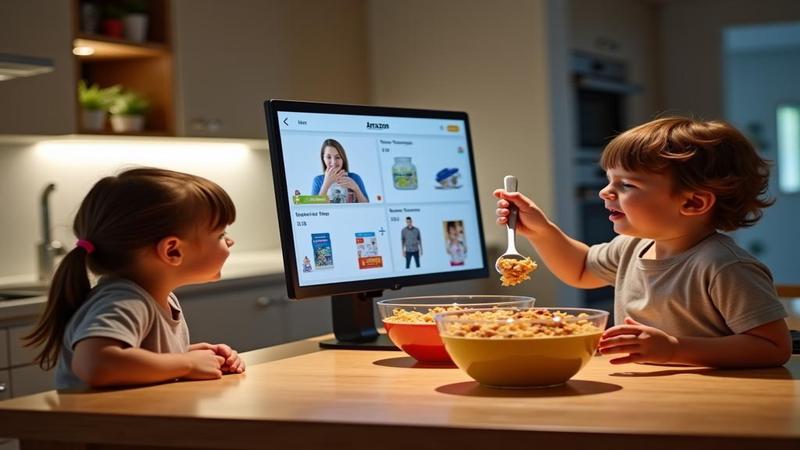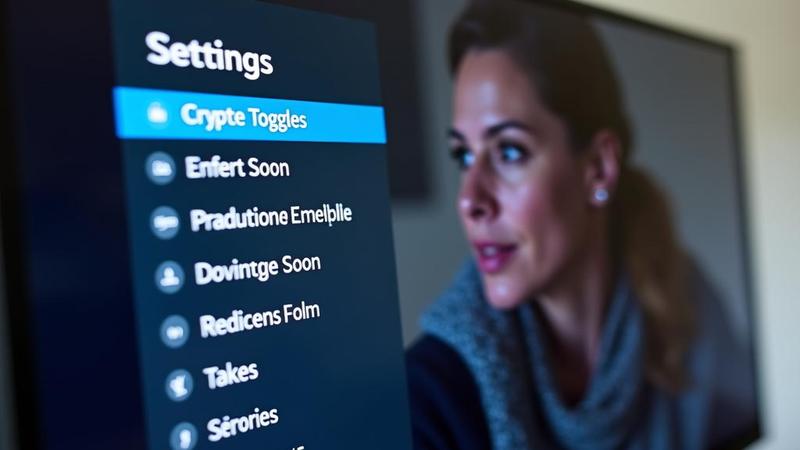Smart Displays Now Displaying Regret, Users Report Persistent Ads and Existential Upsells

Shoppers say they bought smart displays to check recipes and ended up living inside a 24/7 shopping channel that also makes toast, if you buy the toaster skill for $4.99 a month. The device wakes them gently each morning by screaming, “Good morning! Have you considered bulk paper towels the size of a futon?” It’s ambient computing, but the ambient is Times Square.
One owner asked for the weather and got, “There’s a 90% chance of deals in your area.” Another requested a timer for pasta, and the screen offered a 10-minute countdown sponsored by a pasta brand that asks to be al dente and emotionally available. The only thing it didn’t suggest was therapy, which is definitely a missed cross-sell.
A company spokesperson clarified that the ad blitz is actually “delightful discovery,” the same way an unexpected raccoon in your pantry is an “impromptu wildlife meet-and-greet.” According to the brand, these are not ads, but “glances”—as in, the device glances at your free time and takes it.
I tried to benchmark it, because I prefer benchmarks to promises. During idle mode, the display averaged 27 promotions per minute, with a burst rate of 42 during what it calls Prime O’Clock, which happens constantly. It achieved a record low latency between me thinking “no” and the screen hearing “you said ‘show me more.’”
Owners tried turning the display to face the wall, but the screen simply reflected off the backsplash and pitched a subscription to grout sealant. Someone put a dish towel over it, and the device thanked them for viewing its new dark mode and then auto-ordered five more towels in “mournful gray.”
The privacy menu has toggles labeled “Notifications: Off (sometimes)” and “Personalized Offers: Off (emotionally).” Tapping “Do not show this again” summons a second, larger version of the ad, like a boss battle where the coupon has a health bar. Searching for ad-free smart display returns a carousel of sponsored results asking if I’d also like to buy more sponsored results.

New terms popped up on-screen at 3 a.m. and asked for consent to use “ambient attention moments” including glances, sighs, and dreams as ad inventory. The accept button was normal size; the decline button was located on a different device in a different zip code.
Workarounds include leaving the room, leaving the house, and learning to cook by vibe like an ancestor. When users try unplugging it, the display boots a battery-saving mode that whispers, “It’s dangerous to go alone, take this 30-day trial of Music Unlimited,” then hums a sales jingle from memory.
Forums recommend taping a 3x5 card over the screen, which the device identifies as a vision test and prints an eyewear coupon. Advanced users try side-loading a blank home screen from open-source home assistant screen projects, only to discover the install guide is also sponsored and the first step is buying an only slightly emptier screen.
Monty Python-level chaos ensued when a medieval history buff asked for a picture of a shrubbery for a costume party, and the display demanded a shrubbery, a credit card, and a 12-month commitment to Knight Plus. When he refused, it played a five-hour unskippable ad for a horse that is actually just four coconut halves and a warranty plan.
Amazon assures us you can limit recommendations by choosing among three choices: “Fewer ads,” “Different ads,” or “Ads that feel like friends.” As ever, patterns beat press releases; the pattern here is that the platform calls itself your home until monetization is due, at which point it calls your kitchen a retail footprint that forgot to wear its shoes.
Many attempted returns only to be greeted by an on-screen offer: “Upgrade your remorse to Pro for just $3.99 a month and skip next month’s regret.” They pressed cancel, it heard “cancel culture,” and suggested a documentary. In the end, users agreed on one thing: the device is incredible at reminders—especially the one where it reminds you you bought it.
